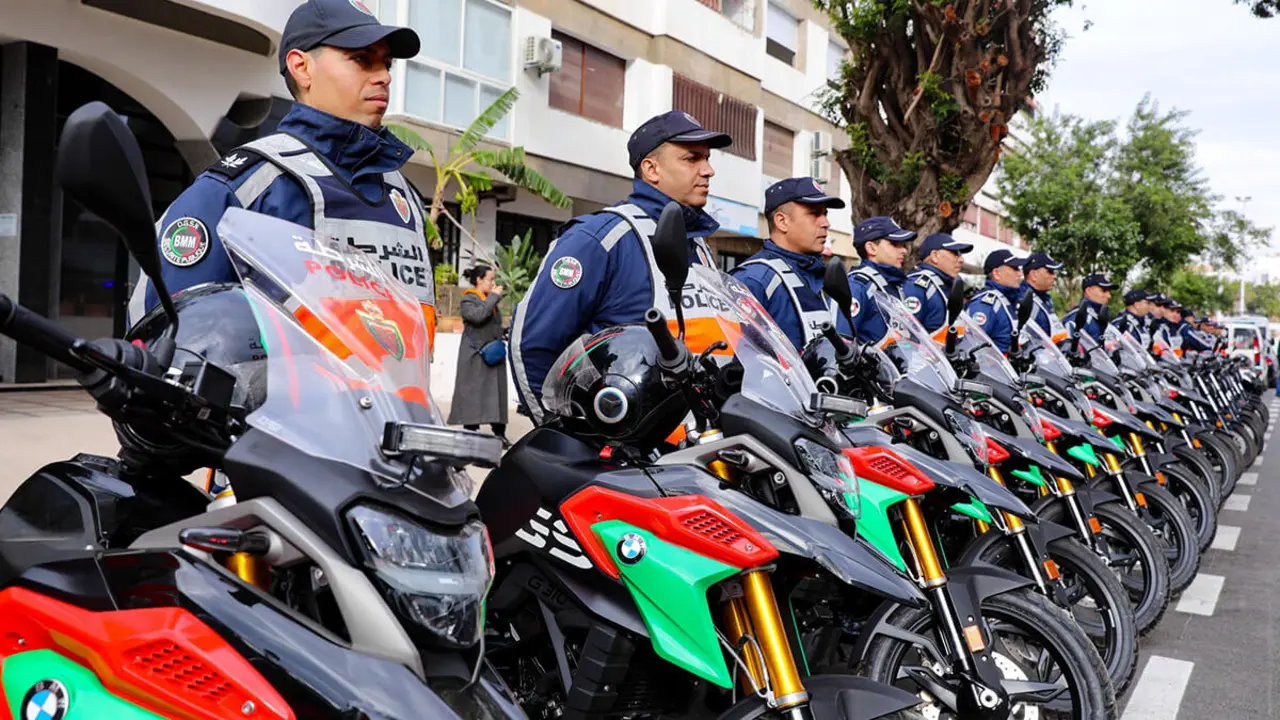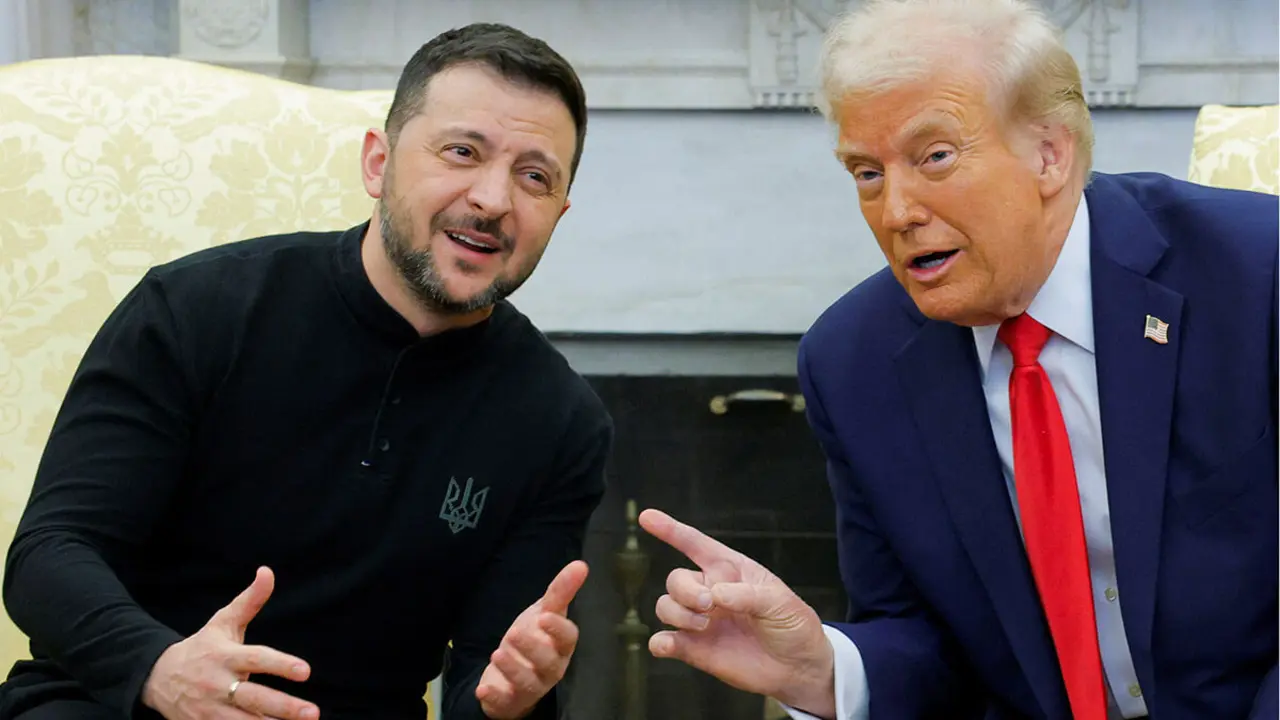Guy Verhofstadt: "The European Union is a constituent process that has been open since its inception"

A European Union as a "cathedral"; under constant construction, said Enrique Barón Crespo, honorary president of the Spanish Federal Council of the European Movement (CFEME). A Conference on the Future of Europe (CoFoE) like the "Guggenheim"; with a deliberative structure worthy of admiration, metaphorised Josune Gorospe, national deputy of the PNV and representative in the plenary of the CoFoE.
However you define it, whatever words you choose to use, if anything was evident in the second half of the conference "Faced with Russian Aggression against Ukraine: the Conference on the Future of Europe Acquires New Relevance", it was undoubtedly the Europeanist enthusiasm of its attendees. At a conference where the dire consequences of the situation in Ukraine were expected to be placed at the centre of the agenda, there were many and very heterogeneous voices that, far from it, tried to provide solutions and propose strategies to defuse the conflict, promote Europeanism and protect the Union.

The afternoon session of the Conference on the Future of Europe event once again brought together politicians, academics, experts and young people from the most disparate academic and professional backgrounds involved in the construction of a more united Europe. All of them under the adjective "pro-European", all of them under the motto "unity in diversity", as the director of the Erasmus Student Network (ESN) in Spain, Marta Fuentes, said.
Thus, in the atmosphere of the Paraninfo of the Complutense University of Madrid, in the centre of the capital, the second round table of the conference was attended by Gemma Durán, professor of Economics at the Autonomous University of Madrid and independent evaluator for the European Commission; Doménec Ruiz Devesa, Socialist MEP and CoFoE representative, who appeared from Brussels; Ricardo Gómez Laorga, President of the Young CFEME, and Tomás Gutiérrez Roa, lecturer and researcher at the CEDEU Centre for University Studies.
This was the second part of the presentation of concrete proposals for the Conference on the Future of Europe, which was moderated by the vice-president of the Spanish Federal Council of the European Movement, Eugenio Nasarre.

This space served as a meeting point for very different proposals, such as those of Gemma Durán, who put on the table the economic problems arising from the EU's gas and oil insecurity, as well as the absence of a complete fiscal union and the uncertainty over the future policies that the Union would have to carry out. Durán, in agreement with the last speaker on the table, Tomás Gutiérrez, stressed the need to promote the European Green Pact and "make progress on the circular economy model".
In fact, in relation to the Green Pact, Gutiérrez addressed the energy issue by calling for an "electricity integration strategy" and its implementation in public transport, which, in his words, "would guarantee European energy security". The CEDEU professor took the opportunity to reflect on the influence of the Russian-Ukrainian conflict on energy in the EU-27. "If this war enters into energy issues, we are all going to suffer the consequences".
For his part, Ricardo Gómez Laorga, as representative of European youth in the CoFoE, appealed to the generation he called "Europe's inheritance". "We must have a leading voice within the participatory democratic process that is taking place at the Conference on the Future of Europe", stressed the President of the CFEME Youth.
"If we want to give the European Parliament a role in economic recovery, it cannot be done from the current treaty. The list of things that need to be done to give Europe new capacities and to improve decision-making require treaty changes. It is time to move towards a Federalisation of the convention", said MEP Domenec Ruiz Devesa. "There has not been an opportunity like this in decades to take the step forward that we have been waiting for.

The third round table of the meeting, dedicated to debating the impact of the CoFoE for Spain, brought together for almost two hours the president of the Canarian Council of the European Movement and member of the Spanish Congress during the accession to the European Union, Manuel Medina Ortega; the representative in the plenary of the CoFoE, Josune Gorospe; the director of the ESN in Spain, Marta Fuentes, and the deputy secretary of the Youth of the European Movement, Eduardo García. All of them under the moderation of José Ignacio Salafranca, Member of the European Parliament and Vice-President of the CFEME.
One of the youngest and most social proposals came from Marta Fuentes: "The European Union cannot allow itself to be elitist. It cannot be that 73% of students participating in the Erasmus Programme are young people who are not at risk of exclusion. We cannot afford not to be inclusive", he denounced. This was supported by Josune Gorospe, who, for her part, placed special emphasis on the difficulties that Europe has encountered in getting closer to the population - in our case, the Spanish population. To consolidate the idea of "European citizenship". To give relevance to such an important issue - according to Gorospe - as CoFoE.
"We are in a bubble here," Gorospe said. "Our aim was to create a spark for reflection on the future of Europe, have we succeeded? And yet the Basque MEP claimed that the CoFoE is "building a Guggenheim museum". A structure for debate, for the creation of a participatory and deliberative democracy that, regardless of what it finally achieves, is to be admired for its own sake.

However, the table talk par excellence was the intervention of Manuel Medina, who highlighted the importance of the European Movement in the process of the Spanish transition in 1975, and who included Russia, despite the current situation, in his idea of "Europe".
"Europe cannot be conceived without Tolstoy, without Lenin, without the Russian Revolution. Now, Europe has to be democratic, but it has to include Russia. And Ukraine is only the beginning of a European recovery that has to reach, not as far as the Urals, but as far as Vladivostok," Medina said. "The young Russians and the Russian European Movement, who are increasingly distant from Vladimir Putin, must know that we are not their enemies; we are their allies.
Eduardo García, in his contributions and deliberations on the importance of the EU and its impetus in relation to Spanish foreign policy, argued that "deepening the European Union is the best way to deepen Spain's foreign policy". Progressive changes are already being made in the EU in terms of borders, migration, etc., "now what is needed is for these advances to crystallise and deepen".

The end of the third round table brought with it the round of questions, and, in this scenario, the question from the audience "Do you think that, before you are no longer young, we will see a Federal Europe?
"The European Union has been and is an open constituent process since its beginnings," said Renew Europe MEP and co-chair of the Conference on the Future of Europe, Guy Verhofstadt, in his dialogue with El País journalist Xavier Vidal Folch, in what could well have been the answer to the audience's question. Verhofstadt, a profound pro-European and nicknamed "guardian of the CoFoE", expressed his hope for a Convention after the end of this conference, which he predicts will be key for the EU. This he sees as feasible through the use of qualified majority voting, rather than unanimity - a procedure he said he was opposed to.
In addition, Verhofstadt addressed the need for a European army, the health, energy and ecological union, and the return to the management of own funds that do not depend on contributions from the member states.

Finally, after several long days of deliberation and sharing, Xavier Vidal Folch made public the conclusions drawn from all the contributions and debates, which he organised according to their political, economic, social, youth and security nature - both internal and external. "If we don't take this opportunity to do our homework and pass the subjects we have pending, I don't know when our September will come and we will be able to make up for it," concluded the journalist.
The closing ceremony, led by the President of the Spanish Federal Council of the European Movement (CFEME), Francisco Aldecoa Luzarraga; the Honorary President of the CFEME, Enrique Barón Crespo; and the Director of the General Foundation UCM, Andrés Arias Astray, ended with the promise of a future publication that would bring together the proposals discussed, as well as the CoFoE process.
In closing, the President of the CFEME noted: "The European Union must now assert itself as an important democratic power, both for its own defence and for the future of the world. That is our challenge" to which the audience responded with a round of applause.








